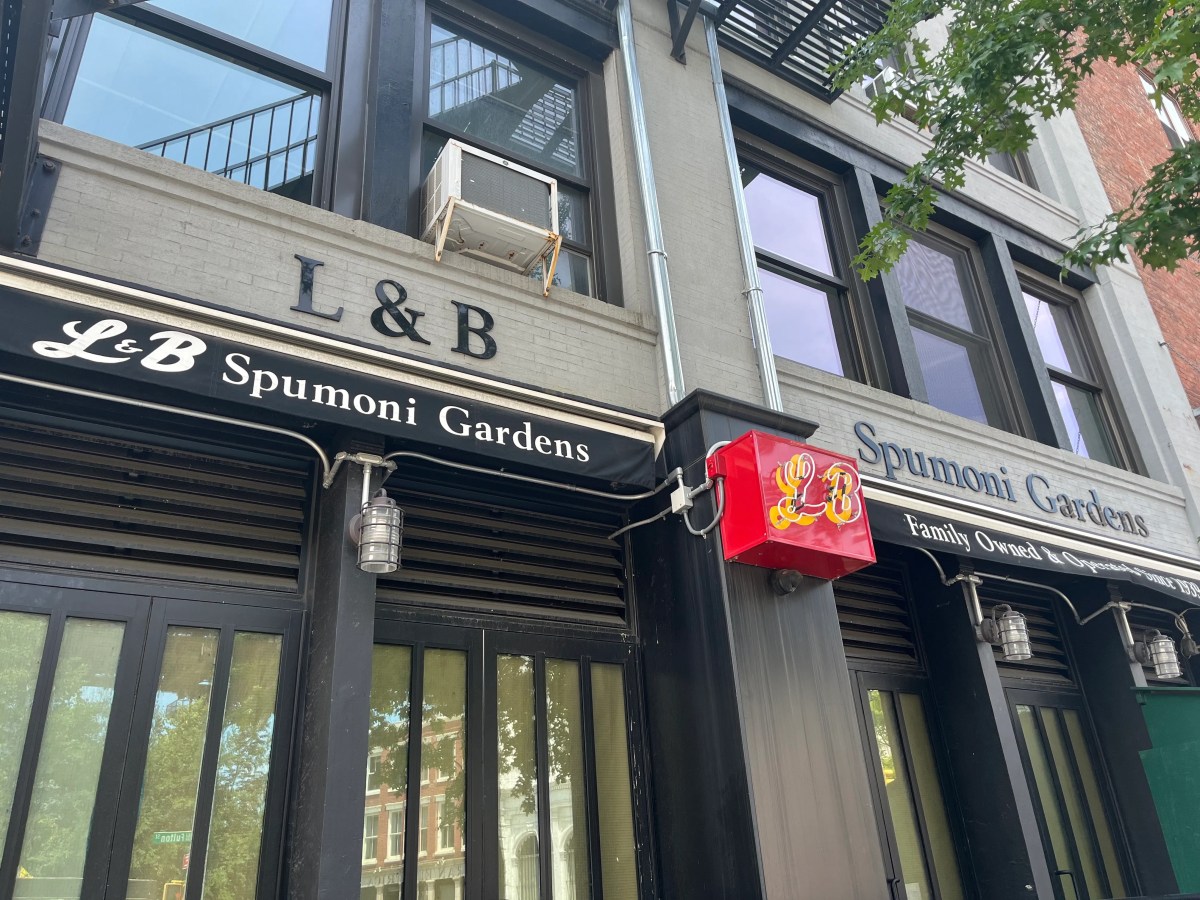By Julie Shapiro
When the Rev. David M. Rider took the helm of an organization serving maritime workers, the Seamen’s Church Institute, he didn’t know much about boats.
Rider had developed counseling expertise as a hospital chaplain and psychotherapist, but never in the context of sailors. Now, after three months as president and executive director of the Seamen’s Church Institute, Rider speaks fluidly about river barges, deep-sea ports and the bright future of international shipping.
“I’m learning the industry,” Rider, 53, said from his maritime-themed office in the institute’s Seaport headquarters. Paintings of ships on rocky and calm seas line the walls, and the entire building features displays of historic ship models.
Founded in 1834 to give seafarers support and pastoral care, the early days of institute included a floating chapel on the East River and a hostel in Manhattan to prevent sailors from engaging in “alcohol abuse and various immoralities” while in port, Rider said. Originally an offshoot of Trinity Church, the institute has been based in Lower Manhattan since its founding. The 241 Water St. office now houses corporate headquarters; the policy, advocacy and law department; outreach to retired mariners; and licensing and security documentation for current or potential mariners.
With services also based in Port Newark and along the Ohio and Mississippi rivers, Seamen’s Church chaplains are on call for crises small and large.
On an early morning last month, in the waters of the Mississippi River bordering Iowa, a deckhand fell off a coal barge into the river. The boat was going through a lock, a tricky maneuver with only 2½ feet to spare on either side. This time there wasn’t enough room, and the deckhand was crushed against the lock and killed.
It was one of a half-dozen similar shipping fatalities each year, and it kicked the institute into high gear. The closest institute chaplain was in Alabama, so he got in his car and sped to the scene to counsel the deckhand’s crewmates. Another chaplain called the man’s family in West Virginia, to offer support and assistance with the funeral.
Rider likens the operations to a fire department, which supports the families and coworkers of the fallen.
Like Rider, many of the chaplains are Episcopal by training, but all have interfaith, cross-cultural experience. Rider is quick to emphasize that the institute is not out to convert people, but to provide comfort — much like a hospital chaplain.
“We meet that person where they are,” Rider said. “If the shipfarer says, ‘Can you pray for me?’ we don’t want to give a prayer that is offensive.”
A Filipino seafarer in his mid-20s was newly married when he set off on his first nine-month commercial ship voyage. Soon after leaving, he found out that his wife was pregnant. He had an agonizing choice to make: miss his first child’s birth or opt out of his contract, losing the wages his new family needed.
The sailor met Rider at Port Newark. After a 15-minute conversation with Rider, the man decided to stay with his ship and complete the contract. He was still lonely, Rider said, but was comforted by the conversation.
“It’s like the military,” Rider said of the grueling schedules and long separations mariners face. “When you’re away, you’re away.”
Those who work on inland river barges in the United States have more frequent access to their families — Rider has heard of a father getting on his cell phone to help his daughter with her homework — but sometimes the close contact makes the absence harder.
“It’s a different rhythm of intimacy, solitude and loneliness,” he said.
One of the most common things chaplains see aboard international ships is divorce. The infrequent opportunities to call home and the inability to visit can intensify feelings of separation.
But Rider doesn’t want to make the job sound too glum.
“Many men love it,” he said. “They’re made for it. Their families are adjusted and they’re adjusted.” On American vessels, the men also have good wages and benefits.
The laws regulating workers’ compensation vary by country, but the institute’s legal center keeps sailors informed of their rights and also advocates for better treatment worldwide. The lawyers hear complaints about everything from bad food to environmental pollution at sea. Most of the clients are international, and the legal advice is free.
When international workers are docked in Port Newark, many visit the institute’s Seafarers’ Center, where they can call home, go online, shoot pool and read magazines and newspapers in a huge variety of languages. The men — international commercial vessels are staffed nearly entirely by men — come from Chili, Ukraine, the Philippines, Russia, India, Japan and China.
“It’s like the United Nations,” Rider said. “It’s a mirror of New York. It’s the best of historical New York and the best of the current reality of New York.”
Rather than just responding to crises, the institute also works to stop them before they have time to start, by providing simulation training for ship pilots in Houston and Paducah, Ky.
The goal in each simulation is simple: “to stay alive and not kill someone else,” Rider said. But that isn’t easy to achieve, in exercises that make videogames look like child’s play. “If you treat [the simulation] like a videogame, it’ll eat you for lunch,” Rider said.
With white-painted railings and curving, wooden-slat stairs, the 241 Water St. office of Seamen’s Church Institute feels a bit like a ship itself. Real ship figureheads and models of historic vessels hang from the walls. Tiny ships dot a Christmas tree in the lobby as ornaments.
A bronze plaque commemorating the Institute’s founders is a veritable who’s who of the 19th and early 20th century. Past trustees include Cornelius Vanderbilt, Andrew Carnegie, John D. Rockefeller and Franklin Delano Roosevelt.
Several days after Christmas, a large room at the institute was still a Santa’s workshop, brimming with hand-knitted scarves and hats in a bold array of colors. This is the headquarters for Christmas-at-Sea, a Seamen’s Church project that distributes nearly 18,000 gift packages to sailors worldwide.
“It just keeps coming,” program manager Jeanette Devita said, gesturing to the shipments of scarves that arrive from youth groups around the country. More than 4,000 people knit the items, which the mariners receive along with a handmade card and a few practical gifts: a notebook, magnifying glass, sewing kit and nail clippers.
“There’s so much effort put in for people they never see,” Devita said of the many volunteers.
Rider is from Indiana originally, and likes the connection of the institute to his “Huck Finn out on the river” image of America. Rider now lives with his wife and two sons, 15 and 20, in Chappaqua, N.Y. Asked what he does for fun while not on the job, Rider just laughs. “I don’t understand the concept,” he said.
However, Rider gets enjoyment from his work, and he’s even getting his whole family in on the act. His sons recently went out on a cargo ship, where they met crewmembers and sampled nan, an Indian bread, from the kitchen onboard. Rider isn’t the only one in his family with newfound enthusiasm for maritime life.
“They’ve gotten hooked by it,” he said, smiling.
Julie@DowntownExpress.com






































